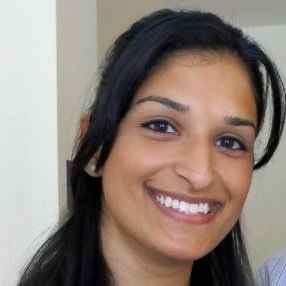Reena Shah talks to DrB
Clinical psychology and psychodermatology

Reena Shah has a BSc (Hons)Psychology, a MSc in Research Methods in Psychology & a Doctorate in Clinical Psychology. She attended Nottingham Trent University before going to the University of Hertfordshire, and then Cardiff University. After qualifying as a Chartered Clinical Psychologist she worked in Adult Mental Health before joining the Dermatology Departments at The Royal London Hospital and Whipps Cross University Hospital, London as a specialist clinical psychologist in psychodermatology. She works with the All Party Parliamentary Group on Skin and the British Association of Dermatologists' psychodermatology advisory group and also teaches, conducts research and runs a private practice.
DrB: I was delighted to meet you last year at the Psychodermatology UK meeting, when you spoke on “Coping with Vitiligo”. What first attracted you to psychodermatology?
RS: Since university I became intrigued how many people are obsessed with how they look. Then I was struck by the difference between the person with only one spot on their face who will not leave the house, while another person with a face full of acne can be so sociable and quite unaffected by their appearance. I decided to instigate some research into how this happens, and what can be done to help.
DrB: Psychodermatology used to be very much a special interest of only a few dermatologists. You are now part of a pretty unique multidisciplinary psychodermatology clinic. What do you see as the essential components of a successful psychodermatology service?
RS: The gold standard would be three specialities working well together: dermatology, psychiatry and psychology. In our team what is important is that we have a compassionate dermatologist with an interest in psychodermatology, a psychiatrist with an interest in dermatology and a dedicated psychologist. This means that we can offer the client a line of treatment that addresses both their dermatological and their psychological needs.
DrB: Although it is now part of the curriculum for training in dermatology, there are still only a few centres offering such psychodermatology expertise.Your clinic is a national service. How do you cope?
RS: Unfortunately, due to lack of resouces, my waiting list is normally between six months to a year long! In an ideal world we would have trainee dermatologists and assistant psychologists to help out. There is also an important role for the dermatology nurse, offering time and support, help with understanding and keeping to treatment plans, and in running basic groups for general support, and education - and habit reversal, of course! Supervision is potentially a role here for the psychologist.
DrB: Tell us some more about your role.
RS: There is a lot to do! Assessment of psychological needs when there are special concerns, and to recommend and conduct appropriate psychological treatment. I offer both individual and group therapy, and work with couples and with families. Assessment is also involved before dermatological medical treatments that can have psychological side effects are started, and also before some psychiatric medical treatments are started. Then there is consultation with team members, training and teaching, and research of course. Research involves not only planning and conducting studies, but writing and getting papers published, and attending and presenting at conferences.
DrB: I think teaching and training are really important. Tell us more about this.
RS: In-house there is work with our dermatology team - doctors and nurses. I also teach on the MSc Skin and Mind course run at the University of Hertfordshire, and at an annual psychodermatology week-end for specialist trainee dermatologists.
DrB: What is your experience working with clients who have atopic eczema?
RS: I have done this now for two and a half years, with all age groups. The Combined Approach - optimised topical treatment plus habit reversal - is crucial for success, together with cognitive behaviour therapy and other interventions, when scratching is more than just a habit - when it is emotional. Relaxation, and mindfulness techniques, for example.
DrB: So who do you see as best suited to having The Combined Approach?
RS: Those clients who are not using topical treatment in an optimal way, and for whom their eczema is being complicated by the damage caused by regular scratching. Being motivated to change their behaviour is also important. Some are best seen individually, but I have found the approach is very effective in groups, for those who are happy to join a group.
DrB: This is interesting! All my work has been working one-to-one. Tell me more about The Combined Approach when working with a group.
RS: I have 8-10 people in a group for habit reversal, with 6 sessions, over several months. The group is normally mixed, so some have eczema, and others have nodular prurigo, and skin picking, for example. One session can be used to optimise topical treatment and I also integrate a session on stress management given the strong connection between stress and the skin. I leave a few weeks between some sessions, to give people a chance to make changes, as some find it demanding if they are expected to make changes in only a week or two.
DrB: How are your results?
RS: My results show the group format is very effective when pre-assessment ensures selection for the group is appropriate. I am currently writing up our results for publication, so watch this space! It is important that some clients like to be in a group, and the format also saves on clinic time.
DrB: How do you find this website: is it useful?
RS: It is a great website! More should know about it. I recommend it to clients all the time. I especially like the Habit Reversal Tips, Topical Tips, and the Friday Facts.
DrB: And how do you see the future for psychodermatology?
RS: There is so much to do! We need to think about developing and promoting the work we do, but it isn’t easy with NHS cutbacks. Still, thankfully, we seem to be gradually getting there!
